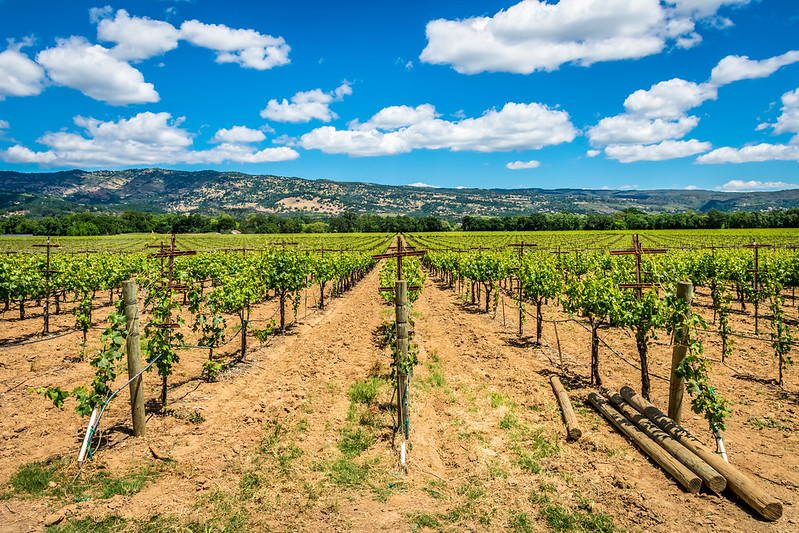Connoisseurs know that pairing a fine cut of steak with a Napa Valley cabernet sauvignon is a sure winner. But how many are aware that pairing strawberry cheesecake with a certified Santa Cruz Blue Dream cannabis strain creates an equally delicate palatal synergy? Thanks to the California Department of Food and Agriculture’s CalCannabis Appellations Project (“CAP”), premium cannabis regions will soon have the potential to capitalize on such newfound awareness among discerning consumers.
For decades, cannabis connoisseurs have been willing to pay a premium for flower said to have been grown in certain regions or with certain techniques, but because of cannabis’ legal status, supply chains have been opaque. As a result, cultivators of distinct cannabis strains struggled to capture the full market potential of their products. That has begun to shift with implementation of California’s Cannabis Track-and-Trace System. The costs associated with implementation of the METRC1 system have been bemoaned by many in the industry, but there is also tremendous potential value in having the most transparent supply chain in the world. The CalCannabis Appellations Project is the vehicle through which brands will be able to harness that value.
 The underlying premise behind the CalCannabis Appellations Project is that the distinctive qualities of a cannabis product are often attributable to where and how the plant is grown. Through this project, CalCannabis is developing a statewide appellations system2 that will allow qualifying licensed cultivators to effectively communicate information about their cannabis crops (i.e., the standards, practices and/or varietals used) through labels, advertisements and other marketing techniques. It will also prevent disingenuous cannabis cultivators from making inaccurate claims about where and how a product is grown, which protects the integrity and value of the appellation.
The underlying premise behind the CalCannabis Appellations Project is that the distinctive qualities of a cannabis product are often attributable to where and how the plant is grown. Through this project, CalCannabis is developing a statewide appellations system2 that will allow qualifying licensed cultivators to effectively communicate information about their cannabis crops (i.e., the standards, practices and/or varietals used) through labels, advertisements and other marketing techniques. It will also prevent disingenuous cannabis cultivators from making inaccurate claims about where and how a product is grown, which protects the integrity and value of the appellation.
What is an appellation?
In general terms, an appellation is an identifying name, title or label that can be legally defined and protected. Appellations are most commonly used in the wine industry to geographically identify the origin of grapes in a particular bottle. This place-based identification system comes from an understanding that certain regions have unique environmental and growing characteristics, which result in a product that cannot be produced from other regions even when the same varietals are used. Famous wine appellations or American Viticultural Areas (AVAs) in California include the Napa Valley and Santa Ynez AVAs, and sub-AVAs such as the Russian River Valley AVA, located within the larger Sonoma County AVA.
Recognizing there are also growing regions that produce uniquely distinctive cannabis, CalCannabis is developing a process for:
- Establishing an appellation (i.e., identifying regions that produce distinctive cannabis and defining standards, practices and/or varietals that must be used in those regions to qualify for an appellation); and
- Qualifying to use a particular appellation once they are established (i.e., determining the cannabis cultivators that can legally label or market themselves as belonging to a particular appellation).
While the state has not released program details, it’s likely that cultivators will have to demonstrate their outdoor-grown cannabis is distinctly unique.3 CalCannabis has until Jan. 21, 2021,4 to establish these processes, but a draft is expected to be released by early January 2020.5 This is an opportunity for cultivators to organize and participate in the process to define and create unique local appellations.
What are the benefits of an appellations system?

Image: James Faulkner, Flickr
Appellations benefit both cannabis cultivators and consumers. It allows small farmers to capture the value that consumers place on unique and local cannabis products. Allowing for product differentiation through an appellations system will prevent cannabis from becoming a commodity—a situation that could result in indistinguishable products and a single market price for cannabis regardless of how or where it is grown. Thus, an appellations system protects not only local economies and farming communities, but also consumers that care about the origin and growing practices of their cannabis.
A criticism of appellations, particularly in the wine industry, is that they can disincentivize innovation and industry growth when strict growing practices and standards are required to be a part of an appellation. This will be an important consideration as CalCannabis establishes its appellations system.
County of Origin
In addition to setting up an appellations system, the CalCannabis Appellations Project will expand upon current county of origin regulations. Unlike an appellation designation, the county of origin designation is designed to be much more inclusive—it can currently be used on any cannabis product as long as 100% of the cannabis is grown within the designated county.6 Whereas an appellation will communicate information about the quality of a cannabis product and how it was produced, a county of origin designation is more like a “Made In” label. For example, a county of origin designation can be applied to indoor cannabis whereas an appellation will likely only include sun-grown cannabis.
 There is also a desire to allow city of origin designations in addition to county of origin designations, which would enable products grown wholly within the political boundaries of a city to further differentiate themselves.7 As the legal cannabis landscape changes nationwide, it may also be important to have a statewide appellation allowing products to be marketed as “Grown in California.”
There is also a desire to allow city of origin designations in addition to county of origin designations, which would enable products grown wholly within the political boundaries of a city to further differentiate themselves.7 As the legal cannabis landscape changes nationwide, it may also be important to have a statewide appellation allowing products to be marketed as “Grown in California.”
What should cannabis cultivation regions be doing now?
After CalCannabis releases a draft process for establishing an appellation, the next steps will be clarified. However, not everyone is waiting. For instance, growers in Mendocino County have already started to organize.8 The Mendocino Appellations Project divided the county into 11 unique subregions based on regional growing conditions and practices that could potentially be turned into appellations in the future. The goal of the appellations outlined by the Mendocino Appellations Project is to protect cannabis products coming out of Mendocino County and preserve the region’s growing heritage.
A group in Sonoma County is also discussing the establishment of appellations with the hope that it will help differentiate their cannabis and draw attention to the unique microclimate and soil structure in parts of Sonoma County.9 The groups involved in these discussions also believe it will allow cultivators to develop strict growing standards and to protect certain strains, while creating new jobs and encouraging agritourism. Appellations will become increasingly important as sophisticated consumers begin to select quality cannabis that aligns with their preferences.
References
- METRC is the third-party-owned software contracted by California authorities to implement the commercial cannabis track-and-trace system “from seed-to-sale.”
- Passage of Senate Bill 185 calls for the use of the term “appellations of origin” instead of “appellations.”
- Based on comments made during the October 23 Cannabis Advisory Committee Meeting.
- Business and Professions Code Section 26063.
- Based on comments made during the October 23 Cannabis Advisory Committee Meeting.
- Business and Professions Code Section 26063(a).
- Based on comments made during the October 23 Cannabis Advisory Committee Meeting.
- https://swamiselect.com/mendocino-appellation-project/
- https://www.sonomacountygazette.com/sonoma-county-news/cannabis-appellations-the-small-cannabis-farmers-elyon-cannabis.








